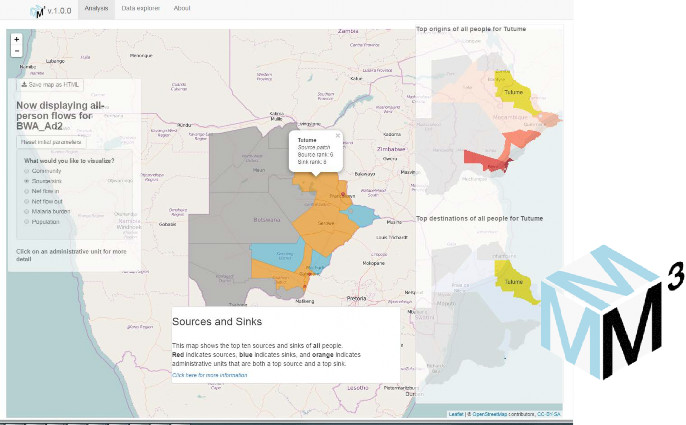WorldPop Projects
Mapping mobility for elimination (M3) web application
Project Leads: Andy Tatem, Nick Ruktanonchai
Funding: Bill and Melinda Gates Foundation, Clinton Health Access Initiative
Numerous countries are approaching malaria elimination. Until global eradication is achieved, countries that successfully eliminate the disease will contend with parasite reintroduction through international movement of infected people. Human-mediated parasite mobility is also important within countries near elimination, as it drives parasite flows that affect disease transmission on a subnational scale.
Long-term migration data can effectively predict the relative flows of short-term movement, and when combined with incidence data, these data can be used to direct malaria elimination policy. This is particularly important as migration data are generally easier to obtain than short-term movement data such as mobile phone records.
A user-friendly web application has been developed that uses these long-term migration data to predict movement subnationally and regionally, and creates maps of predicted flows of infected people that are easily-understood and relate directly to malaria elimination policy. This app will be available freely online on the WorldPop website (www.worldpop.org) for use by malaria elimination programs and other non-academics. Users will be able to not only predict movement of infected people, but also plot their malaria burden data. By building the outputs from input data on malaria burden and movement in an interactive fashion, this app will promote understanding of human movement and its relevance (and shortcomings) for addressing key questions surrounding malaria elimination planning. This app will therefore also promote general understanding of mapping and movement and its applicability for elimination.



